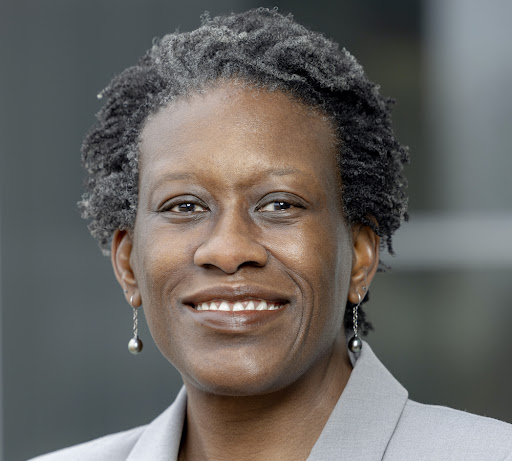Amidst the rich tapestry of Arkansas’s history are remarkable women who have long been forging paths, leaving indelible marks on their communities and beyond. As we kick off Black History Month, the Women’s Foundation of Arkansas proudly spotlights one such trailblazer: Dr. Karama Neal, principal at the Neal Firm. In this exclusive Q&A for our Making History blog series, Karama shares insights from her journey, illuminating Black women’s challenges, triumphs, and enduring impact in Arkansas.
Can you share a bit about your background and journey? What inspired you to pursue the path you’re on today?
I’ve always loved basic science. After a high school lab job at UAMS, I earned my Ph.D. in genetics and worked in bioinformatics. I went on to rural and community development finance partly because I could have a more immediate impact on human well-being. I’m grateful for my experiences, especially my recent completion of a Presidential appointment. I look forward to continuing to identify ways to integrate these experiences as I enter my third career with my consulting firm, where I’ll work with corporate, academic, nonprofit, philanthropic and government entities. The throughline in all my work is a commitment to equity and opportunity.
The rigor of the scientific method still informs my work, and I encourage others to pursue scientific careers. The WFA Girls of Promise Program ensures that more Arkansas girls feel confident pursuing STEM careers.
As a Black woman in Arkansas, what unique challenges and opportunities have you encountered in your professional and personal life?
As a relatively small state, Arkansas presents several opportunities that can be particularly relevant for Black women and others. For example, living in a small state can sometimes feel like there are only two degrees of separation rather than six. This makes it relatively easy to find some meaningful connection with almost anyone in (or from) the state. Also, our smaller population means that impactful change requires fewer people. That can make it easier to ‘move the needle’ on challenges and opportunities that exist in our state. These factors (and my family!) influenced my decision to move back home to Arkansas 15 years ago after 18 years away. And I expect that these and other reasons were relevant to my late mother, Janet Cobb, when she returned home to Arkansas from Chicago in the late 1960s.
Black History Month is a time for reflection and celebration. In your opinion, what aspects of Black women’s contributions to Arkansas history are often overlooked or underestimated, and why are they significant?
We have so many incredible Arkansas women to celebrate! From Sister Rosetta Tharpe and Maya Angelou to Daisy Bates, Raye Montague and so many more. As I honor them, I also honor those who make a more local difference. For example, the late Maggie Fingers, a church member I knew from childhood, was the first black woman to work in the Little Rock Post Office. Or Anna Strong, principal of RR Moton High School in Marianna, who refused to hold a split term, which many schools used so that children could work in cotton fields in the fall rather than go to school. Their stories and many more inspire me by reminding me of what’s possible for me, my daughter and all our children. That’s important for what’s now often called Black Futures Month.
In your experience, what are the key issues that need attention when it comes to supporting and uplifting Black women and girls in Arkansas? How can the community, organizations and individuals contribute to positive change?
There is a real need for equitable investment in traditional public schools, for women’s legal access to the full range of obstetric and other healthcare services, for equitable women’s economic opportunity and improved civic engagement. Regarding the latter, according to the recent civic engagement report from the Clinton School of Public Service, Arkansas has the lowest voter registration rate and the lowest voter turnout rate in the country. There’s so much work to do on these issues; addressing them will mean a better Arkansas for all of us and our future.
What message would you like to share with the next generation of Black women leaders in Arkansas who aspire to follow in your footsteps?
My favorite author, the late Octavia Butler, has a line from an unfinished novel to have been titled “Parable of the Trickster.” In it, she wrote, “There is nothing new under the sun, but there are new suns.” I encourage everyone to go boldly toward their new sun!
Dr. Karama Neal is a longstanding supporter of the Women’s Foundation of Arkansas and was named the Brownie Ledbetter Civic Engagement Award recipient in 2020 and a Top 100 Woman of Impact in Arkansas in 2023.
